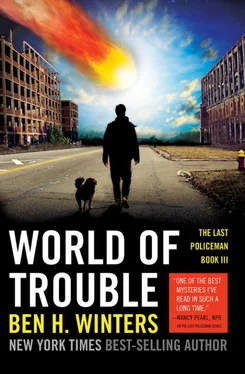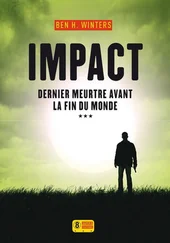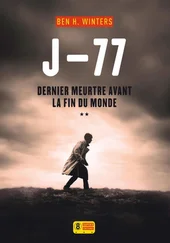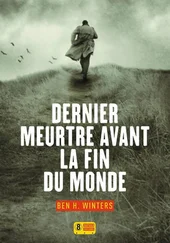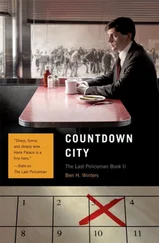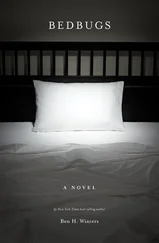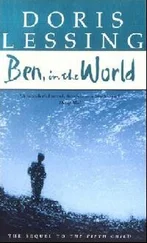I feel, deep down beneath my injuries and exhaustion, a quicksilver glinting of joy. I’ve got him. I push it. I keep going. “I was meant to escape from that barn. God wanted me to have your help in finding my sister. I have traveled the country cloaked in his protection. I was never in danger.”
He looks down for a moment, closes his eyes and murmurs. More prayer. So much prayer. Then he looks up at me. “Do you have a picture of her?”
* * *
She was there. In Rotary, at the police station. This was four days ago. Wednesday, September 26; Wednesday, the day before Cortez and I arrived. My stomach tightens. I need to know he’s sure of the date, and he is, Mr. Miller has been keeping careful track of the time—careful track of each of his odd-job employments and the goods he receives for them—careful track of everything. He remembers the work at the Rotary PD, and he recognizes Nico’s face right away.
I ask him to slow down. I ask him to start at the beginning. I take out my notebook and I tell him I need the whole day—would he mind going slowly and giving me the entire day?
Atlee had gone out that morning as he goes out every day, leaving his people with their usual strict admonitions to remain on the property. In Pike, between here and Rotary, he met a young man with a long face and a nervous expression, who gave his name simply as “Tick.” The man promised him a crate of packaged meals in exchange for a small job of work at the Rotary police station.
“What do you mean, packaged meals?”
“Army food,” says Atlee. “He called it something.”
“MREs?” I say.
He nods. “That sounds right. Yes, MREs.”
I write it down, army surplus rations… Army?… long-faced man, “Tick”?… and motion for him to go on. Atlee agreed to take the job and he and Tick traveled together to the Rotary station, arriving at approximately 2:30. He went alone because it was a simple job that Tick described: sealing a stairhead with a slab of concrete that had been custom-built for the purpose.
When they got to Rotary, Tick told Atlee to wait, said it shouldn’t be more than fifteen or twenty minutes, and Atlee said that sounded okay, although he wasn’t terribly pleased about standing around. He had other things he needed to be doing, there are always other things to do. But he waited, stood with crossed arms just inside the door of the police station, trying to stay out of the rain, and out of the way of a group of young men and women moving boxes and bags from the lawn down a flight of metal stairs into a basement.
Besides Tick, Atlee communicated directly with only one of them, a man who appeared to be the leader: a short stocky man, older than the others, with bushy hair and dark brown eyes behind horn-rimmed glasses.
“Did you get this man’s name?”
“Astronaut.”
“His name was Astronaut?”
“I might guess it wasn’t. But that’s what they called him.”
I write it down. Astronaut . Two circles around it and a question mark.
This man Astronaut was quietly but unquestionably in charge, Atlee says, giving the orders and keeping the group on task as they rolled up sleeping bags and zipped up duffels, stacked boxes of food and jugs of water and tromped up and down the staircase. There were boxes, too, big square shipping crates that looked heavy, that had to be carried by two people moving slowly as they descended the steps.
The contents of the boxes, Atlee doesn’t know. My mind flies out in all directions. A machine saw—guns, ammunition—fuel—computer equipment—building materials—
I have arrived at the penultimate page of my slim blue notebook. I steady my hands. I am picturing these people: nervous, strange-looking Tick, Astronaut with the eyeglasses and the bushy hair. The kids, college-age kids like Nico, marching up and down the metal stairs like ants, hauling their food and their water and whatever was in those crates.
Atlee guesses there were fourteen people in this group: eight women and six men. I ask him what they looked like and he shrugs and says “they looked like people,” and it occurs to me that it may be the same for Amish people looking at us as us at them: do we in our nonblack clothes and our ungodly accessories and haircuts, do we all look the same? I press him, though, get what details he recalls. There was a kid with bright blue sneakers, he remembers that, a tall kid, heavyset. One woman he remembers particularly, African American, unusually thin. I describe the sleeping girl, Lily, and he doesn’t remember seeing any Asian women, but he can’t say for sure. I describe Jordan, Nico’s pal from UNH. Just describing him brings up a boiling of anger in my gut; I picture him, sneering, a shape-shifter, hiding layers of secrets beneath sunglasses and a smirk.
But Atlee doesn’t recognize the description; no one he recalls as particularly short, no one in sunglasses.
But one person—one person he remembers distinctly. I still have the picture out—the ratty black T-shirt, stubborn expression, the studiedly unhip glasses—and I ask him to look again and he does, he looks again, nods again.
“Yes.”
“You’re absolutely sure?”
“Yes.”
“This woman, she was in the group?”
“I saw her,” says Atlee, “and I heard her speak.”
After he had waited for over an hour for the group to be done with their packing and moving, Atlee was becoming increasingly impatient to do his job and be done with it. On the way there, he had noted a barn on Police Station Road, between the station and the town, and he was intending to stop there on his way home and sift it for what might be useful—animal feed, maybe, or tools, or propane. But now it was approaching four o’clock and his slowpoke clients were still moving their things up and down the stairs, and he was running out of daylight.
So Atlee goes to ask Astronaut how much longer and finds him, in a hallway outside the garage, talking to a girl.
“It was her,” he tells me, pointing to the picture. “Your girl.”
They were speaking, Nico and Astronaut, in hushed voices, at the end of the long hallway that cuts through the police station. Both of them were smoking cigarettes and they were arguing.
“Wait,” I manage. “Arguing about what?”
“I do not know.”
“How do you know it was an argument?”
Atlee smiles slightly. “We are a gentle people. But I do know what an argument sounds like.”
“What were they arguing about?” I can barely hear my own words, my heart is beating so loud; blood is rushing into my head like cold water in a cavern. I feel like I am there—coming upon them, huddled together in conversation in that narrow corridor. Was it already stained with blood, with two overlapping trails leading into and out of the kitchenette?
“I cannot say what their subject was, but I could tell that the girl was the angrier of the two. Shaking her head. Poking the man in the chest, like this, with one finger. The man Astronaut, he says that the situation is what the situation is. The girl says, I disagree.”
I let out a gasp of laughter. Atlee looks at me, perplexed. Of course she said that. That’s my sister, that’s Nico, stubbornly rejecting the most uncontroversial statement of plain truth —The situation is what the situation is. I disagree .—that’s Nico, up and down and all around the town. I can see her saying that. I can hear her. I’m so close to her right now. I feel so close.
“And—okay. Okay, what else did they say?”
Nothing, says Atlee, and shakes his head. “I cleared my throat so they would see me standing there. I had been told half an hour, and now had been waiting three times as long. The man apologized. He was very polite. Very soft in his manner. He asked if I could come back at five thirty. He assured me that by that time they would have completed their move down below, and the concrete piece would be waiting for me to shift into place.”
Читать дальше
